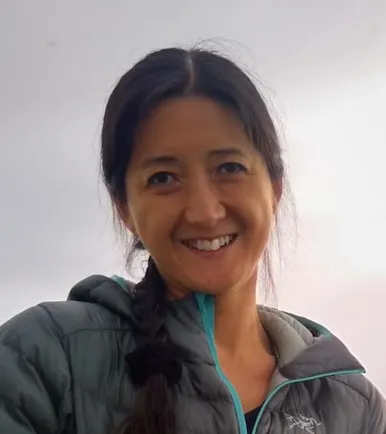About the project
Life in the ocean is sustained by nitrogen fixation, a microbial process supplying bioavailable nitrogen. This project will explore biological controls on nitrogen fixation in the Indian Ocean, bridging cell to ocean scale nitrogen fluxes in the least explored basin in the world’s oceans.
Often called ‘ocean deserts’, subtropical gyres have low biological productivity but, due to their immense size, contribute significantly to carbon sequestration regulating global climate. In gyres, biological productivity strongly depends on nitrogen supplied by microbes called diazotrophs, capable of fixing molecular nitrogen (N2) into bioavailable nitrogen forms.
Climate change models predict increasing uncertainty in biological productivity towards the end of the 21st century. This uncertainty is largely driven by the scarce observations available in the Indian Ocean (IO), representing only 1% of the N2 fixation data available globally. Our current understanding of N2 fixation is mainly based on ‘bottom-up’ controls, i.e. nutrients and temperature. However, growing evidence suggests that ‘top-down’ controls including grazing and interactions between species can have an important role in N2 fixation. These controls have never been studied in the IO, the least explored ocean basin in the world.
You will participate in two oceanographic expeditions in the IO gyre onboard the Research Vessel Marion Dufresne at its minimum and maximum expansion seasons in the frame of the EXPAND project funded by the ERC. You will measure the impact top-down controls on N2 fixation during experiments at-sea using state-of-the-art single-cell isotopic (nanoscale secondary ion mass spectrometry (at IOW Germany) and genetic and bioinformatic analyses (at the University of Southampton UK). These results will link cellular to ecosystem processes, bridging the gap between ocean desert expansion and N2 fixation in the world’s least explored gyre.
You will receive multidisciplinary training including microbiology, oceanography, mass spectrometry, molecular and bioinformatic techniques. This multidisciplinary profile is highly sought-after in environmental science to address the challenges of climate change. The training will include:
- participation in 2 oceanographic cruises in the Indian Ocean
- subtropical gyre circulation and biogeochemistry
- experimental design for N2 fixation and grazing activity measurements at sea
- stable isotope tracing
- molecular sampling and subsequent quantitative/qualitative omics analyses
- flow cytometry
- nanoscale secondary ion mass spectrometry (nanoSIMS).
References
1. Chowdhury, S. et al. Diazotrophy in the Indian Ocean: Current understanding and future perspectives. Limnol. Oceanogr. Lett. 8, 707–722 (2023).
2. Wang, W. L., Moore, J. K., Martiny, A. C. & Primeau, F. W. Convergent estimates of marine nitrogen fixation. Nature 566, 205–211 (2019).
3. Bonnet, S. et al. Diazotroph derived nitrogen supports diatom growth in the South West Pacific: A quantitative study using nanoSIMS. Limnol. Oceanogr. (2016) doi:10.1002/lno.10300.
Supervisors
As well as Professor Phyllis Lam, you will also receive supervision from Dr Mar Benavides (lead supervisor) at the National Oceanographic Centre (NOC), Southampton.
